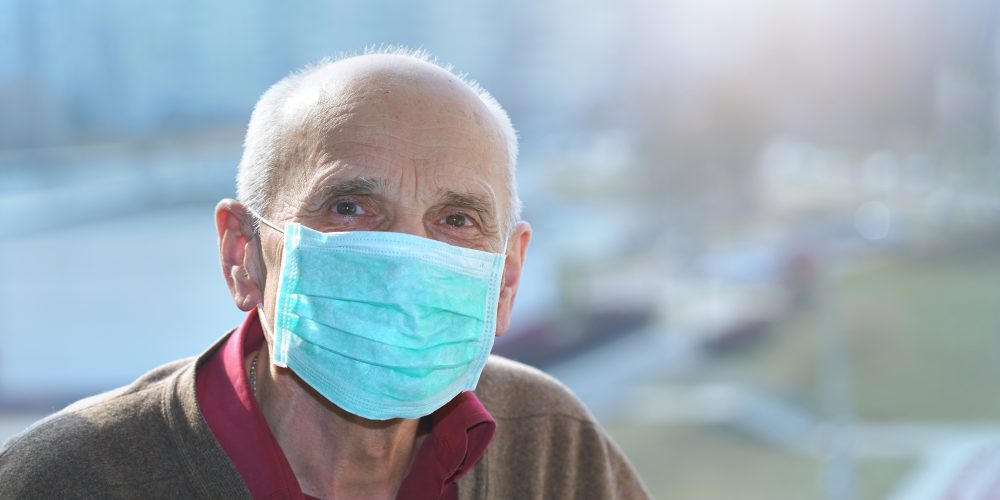How to Lower Risk for Coronavirus in Seniors
While everyone is at risk of getting coronavirus, seniors are especially vulnerable. Advancing age, preexisting health conditions, improper nutrition, and immune suppression further contribute to the risk. Fortunately, the following interventions may help lower the risk of coronavirus in seniors.

Social Distancing
One of the most important interventions to curtail the transmission of coronavirus is to follow social distancing recommendations. Your senior loved one should stay home unless he or she needs to visit the physician. If you are able to go grocery shopping for your loved one, do so.
If work or other family obligations prevent you from helping your elderly loved one with grocery shopping, set up a delivery service for him or her. Seniors who must venture to the grocery store should shop during designated “senior” hours. Also, encourage your loved one to wipe off the handle of the shopping cart with an antibacterial wipe if they are available for use.
Encourage Handwashing
Another crucial intervention that helps curtail the spread of coronavirus is proper handwashing. Washing the hands with warm water and soap for at least 20 seconds is recommended. Make sure the aging adult washes between the fingers and the palms of the hands.
Encourage your senior loved one to also use a fingernail brush to scrub underneath the nails. Also, make sure that the aging adult carries a small bottle of hand sanitizer with him or her for those times when soap and water are not available. Frequent handwashing can lead to chapped, dry, or cracked skin. Compromised skin may allow viruses and bacteria to enter into the bloodstream. Because of this, encourage the elderly person to use a moisturizing lotion after handwashing.
Maintain Hydration
Drinking plenty of water helps prevent dehydration, which may lower a senior’s risk of getting coronavirus. Adequate hydration helps keep the mucus membranes of the nose and throat from drying out and more resistant to the effects of viruses and bacterial infections.
Talk to the physician about how much water your loved one should drink to maintain proper hydration, especially if the individual is on a fluid-restricted diet because of congestive health failure. It is also important that the senior individual avoid drinking large amounts of caffeinated beverages because doing so may promote excessive urination, which is a risk factor for dehydration.
Proper Nutrition
Another intervention to help reduce the risk of coronavirus is to make sure that the elderly individual maintains proper nutrition. Seniors who get their recommended daily allowances for essential nutrients may be less likely to develop infections. Good nutrition also helps maintain a robust immune system, which further helps lower the risk of illness.
If your love one is unable to meet his or her nutritional requirements, talk to the doctor about taking a vitamin and mineral supplement. The physician may also recommend that the senior supplement his or her meals with nutritional shakes to maintain optimal nutrition. For more information about senior care, contact us today.
